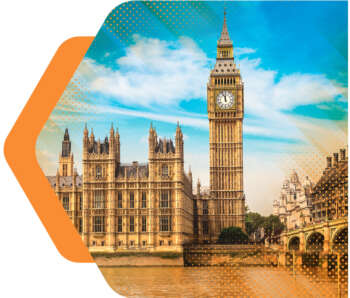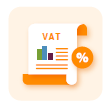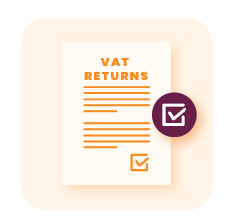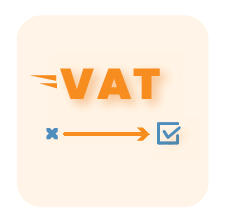Reverse Charge & “Call Off Stock” in the UK
Under the reverse charge mechanism, the responsibility for accounting for U.K. VAT is shifted from the supplier to the recipient of the goods or services.
If the recipient of the goods or services in the U.K. only makes taxable supplies, there is no cost involved, including any cash flow implications, as the input tax and output tax offset each other immediately. However, if the U.K. recipient also makes exempt supplies, only a portion of the input tax credit can be recovered based on the partial recovery rules. This places the recipient in a similar VAT position as if they had received the services from a U.K.-established business.
Read more about Reverse Charge and “Call-off stock” in the UK in our comprehensive guide below.
Selling in the UK?
UK – Import VAT
In the U.K., VAT is typically applicable to all purchases of goods and services made from outside the country. The VAT rate applied is the same as the rate that would be applicable if the goods or services were supplied within the U.K. When importing goods, VAT, known as “import VAT,” is payable at the time of importation. For services, the combination of place of supply rules and the “reverse charge” mechanism generally achieves a similar outcome, ensuring that VAT is accounted for.
Under Section 1 of the VAT Act, imports are subject to taxation. Importation refers to the movement of goods into the U.K. from any location outside of the country.
After the Brexit Transition Period, imports now encompass the movement of goods from EU Member States into the U.K. The previous concepts of intra-Community acquisitions and distance sales no longer apply under U.K. VAT law. However, it’s important to note that these concepts still have relevance in the movement of goods from EU Member States into Northern Ireland. Additionally, specific rules govern the movement of goods between Great Britain and Northern Ireland.
Reliefs from Import VAT
The VAT Act 1994, along with various notices, releases, and orders, provide exemptions for certain imports. These exemptions are subject to specific conditions and requirements. Here are some examples:
- Goods that would be exempt or zero-rated if supplied domestically.
- Capital goods imported in relation to the transfer of activities from abroad.
- Certain health-related goods and goods imported by charities.
- Consumable goods and articles of small value imported in passengers’ baggage, exempt under customs regulations.
- Articles specially designed for the education, training, or employment of disabled people, if meant for approved institutions/organizations or imported by disabled individuals.
- Goods imported by approved organizations for the relief of victims of disasters within the EU or Turkey.
- Imports of donated medical, scientific, and computer equipment intended for medical research, diagnosis, or treatment, funded by charities or voluntary contributions.
Last Updated: 30/08/2023
Disclaimer
The information provided by Global VAT Compliance B.V. on this webpage is intended for general informational purposes only. Global VAT Compliance B.V. is not responsible for the accuracy of the information on these pages, and cannot be held liable for claims or losses deriving from the use of this information. If you wish to receive VAT related information please contact our experts at support@gvc.tax







